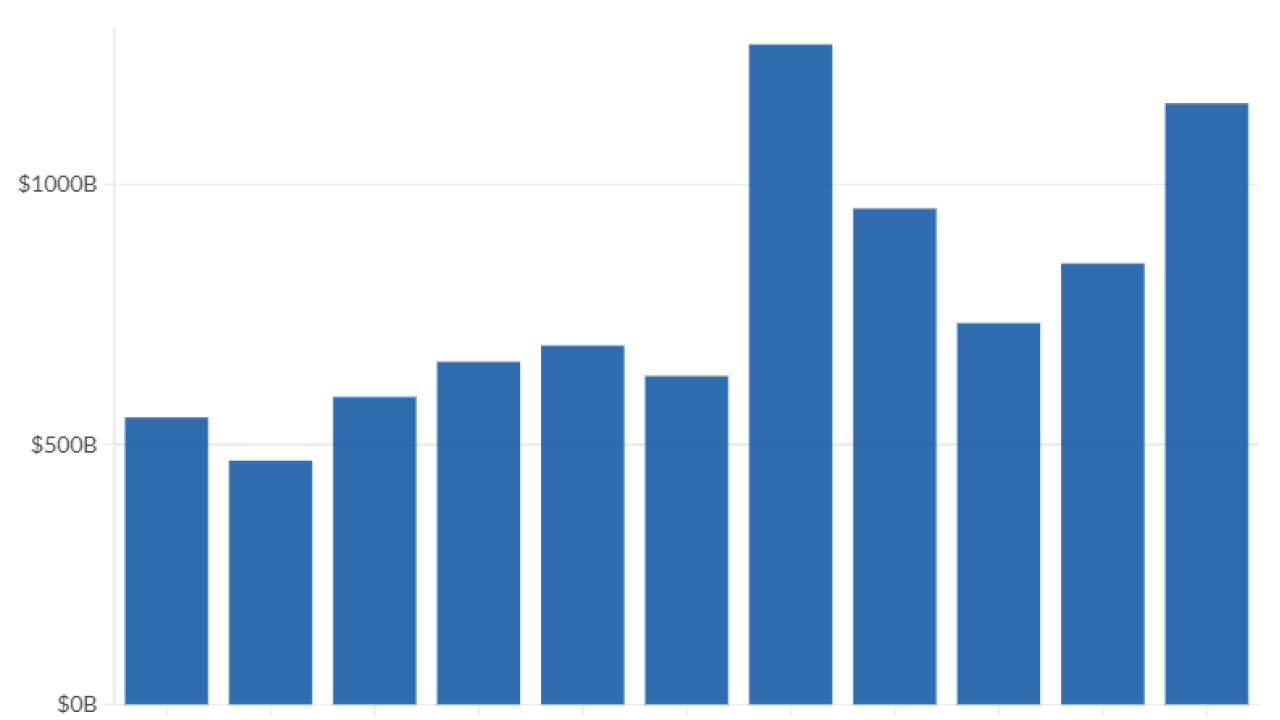In an era of high job turnover, 401(k) rollovers are key to saving for retirement. But when changing employers, many Americans take the money and run.
A shocking 41.4% of U.S. workers withdraw money from their 401(k)s when they leave their jobs, according to a new study by the
"Surprisingly, a large majority … drained their entire balance," said Yanwen Wang, an associate professor at UBC who co-authored the study. "If you think about how many times people change jobs, that potentially means when they retire, they will only end up with a very low amount of retirement savings."
UBC's study examined 162,360 American employees who changed jobs at some point between 2014 and 2016. Less than a quarter of them — just 24.4% — rolled over their savings into a new retirement plan, and 34.2% left all their savings in their old account.
The rest cashed out, in spite of the severe consequences. The Internal Revenue Service imposes a
"Changing jobs is never a good reason to cash out a 401(k)," said Jeremy Bohne, a financial planner in Boston and the founder of
And yet, according to UBC's study, hardships were not the reason for these withdrawals. Instead, the driving factor seemed to be the act itself of leaving a job.
"Something is different about how people think about cashing out at job separation," the study said. "Presumably, prior to job separation, family members of these employees suffered job loss or other temporary needs, yet that did not provoke 41.4% to use retirement funds."
A plurality of Americans — 34.6% — rely on a 401(k)-style plan for their retirement savings, according to the
But these accounts are provided by employers, which Americans swap out frequently. A study by the
All of this makes it more vital than ever to roll over one's 401(k)s, and yet a sizable percentage of Americans aren't doing it. Some wealth managers recall with anguish the times their clients surprised them with a sudden withdrawal of funds.
"This has been going on for decades," said Lawrence Pon, a certified financial planner at
Why do people make decisions like this? Wang has two theories. The first has to do with the psychological effect of an employer match — the policy, common to many 401(k)s, by which a company matches a certain percentage of the worker's contributions.
"Unfortunately, people see this as free money, instead of part of their retirement savings for the future," Wang said. "So when they quit a job, they think, 'Hmm, I have a good chunk of money there. Why don't I just take it?'"
The second theory pertains to the experience of leaving a job. Often the departing worker will get a letter from their former employer, laying out their options for what to do with their retirement savings. One of those options, which may not have even occurred to the saver before, is to cash it all out.
"During employment, you never think about touching your retirement savings — it's kind of psychologically illiquid," Wang said. "However, at job separation, you are provided with a letter, and that reminds you that you can touch a pile of money."
UBC's study proposes a number of solutions to this problem. One is for employers and plan providers to implement auto-portability, the practice of making 401(k) rollovers automatic. Another is for companies to educate their outgoing employees more thoroughly about their options at the moment of their departure.
Of course, employers aren't the only ones who can educate retirement savers. Financial advisors can play a major role in this solution as well — as some say they already do.
"My clients do not cash out retirement savings," said Catherine Valega, a certified financial planner and the founder of







